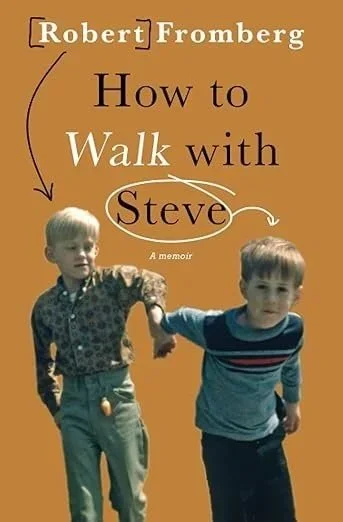Afterword to Serbian Translation of How to Walk with Steve
By Boris Miljković, film director and screenwriter
It is the usual format of an afterword to recommend to, or attempt to influence, the reader, post festum. The afterword considers the details that need to be illuminated. Or the pitfalls to avoid, or the details you may have missed while reading.
That is how those who compose recommendations, prefaces, or afterwords write, those you meet on the pages of the book, before or after the story, or on its cover, without your asking anyone to tell you anything about the book you have bought.
However, this is not what this afterword is about. It is about a rare opportunity to read this book in the first place and most likely react with all kinds of emotions while reading it. To think, after you have read it, that it has been worth reading. For example, I wondered why I had not yet seen a film based on this story, since it stems from a culture in which films often originate from the news, newspaper articles, anecdotes, entertainment, music and, most often, from condensed life and, if successful, such a condensed story strikes us like an unexpected slap. It is, therefore, not yet a film. But, like a film, it strikes you when you least expect it. Here time is not extravagantly spent, just as in a film. The story is simple and at the same time very special. A story about two brothers. About family. About love.
About me and Steve
About you and Steve.
A story presented in such a way is not about stylistics, narrative or the quality of the translation. It is about the events themselves on the pages—scenes of this extraordinary page-turning story, read from the comfort of the cinema hall of our lives. This is the viewpoint from which I look at this story.
This is an invaluable opportunity to present the story about Steve, to open the most often closed chapters of our fateful connections with all that concerns us, and what we most often pretend does not concern us or, worse still, even if we do admit that it concerns us, we don't feel comfortable dealing with.
Most fortunately, Robert Fromberg knows what he wants to convey and he does so in the best tradition of the American film. I deliberately digress from the genre, for this will become a film, if not on screen, then in our imaginations. And a documentary film at that.
This is the moment when we nevertheless create a stylistic figure, make comparisons between fiction, novel and document—a fiction-faction relationship so favored by 20th century writers. Fromberg is not in that story, however his factual fate is so interesting, powerful and emotional that we often think that we are at the centre of the fiction, the skilfully composed and highly imaginative story with a powerful plot.
That is why I cannot write about the style, language, sentences and literary qualities. There are only Steve and his brother. Soft silence and the resonating sound of autism. The story that we have all read (first [translator] Biljana Kocanovic and her publisher, then me and you) is so thought-provoking, that we can only wonder how it all happened, just as it did, with all the characters so easily entering our lives. Which is quite mischievous on their part. On Fromberg's part especially, to keep bursting into our failings and flaws. Bringing us love, Steve and himself into this imperfect world.
